Tips for Getting More Engagement and Shares
Justin Hall, a student at Swathmore college, created the first blog in 1994. In the 21 years since then, blogging has grown in popularity and is now a staple of modern life – and content marketing.
A great blog goes a long way toward creating the modern success story. But how do you know what makes a great blog post? TrackMaven wondered the same thing and recently researched 4,618 blogs to find the answers. So what did they find in the 1,167,426 posts and 1,915,428,305 social shares which those blogs represent?
Here are the five essentials content marketers need to know:
-
Time is of the essence.
One of the first things the study looked at is when blogs were posted and when posts were receiving the most shares. Surprisingly, the timing didn’t line-up. While the most shares took place during the evening hours or early morning peaking between 10:00-1:00PM, the most posts were being put-up during the workday, peaking between noon and 1 o’clock.
So what does this mean for content marketers? The report suggests remember that people tend to do their reading, even their business reading, in their leisure hours. If you want to engage with your customers, doing it outside the 9-5 window is essential to getting them to click.
-
Don’t forget the day.
Much like bloggers tend to be posting during the middle of the day, the study found that they are also overwhelmingly posting during the middle of the week, with Tuesdays, Wednesdays, and Thursdays getting the bulk of posts. Despite this, the study found that the bulk of shares were still taking place on the weekends. The content marketers’ data spoke for itself.
According to the study, “while only 6.3% of posts were published on Saturdays, they received 18% of the total social shares”, meaning; if you want to engage with your customers, Saturday is clearly your best day for posting to your blog.
-
Shorter is better.
If you find yourself being excessively verbose when creating titles you might suppose you shall also lose customer interest. When it comes to creating titles, the study found what most of us instinctively know: on the internet, shorter is better. The average blog title, the study found, is about 40 characters long. These content marketers’ posts did well for reader engagement but the best titles for social shares came in at around 60 characters.
Anything longer than that length significantly decreased the likelihood of a post getting social shares. The key to titling, it seems, is the same as most writing: write long enough that people understand you, but not any longer. People come to blogs to be entertained and a long title risks losing their attention before you ever get them to click.
-
DON’T SHOUT AT YOUR AUDIENCE!
As it turns out, the study found that people aren’t really interested in deviation from standard English punctuation or capitalization with one exception—blog posts with 4 exclamation points saw a significantly greater number of shares. Be wary of adopting this as a gimmick, though, unless you have the blog posts to back-up your exciting headline. Otherwise, the study found exclamation points are generally to be avoided.
In the words of an old English professor, “you only get four exclamation points in your lifetime, use them well.” As for all caps or lower caps? The study found that we are better off sticking with the rules we were taught in grade-school for capitalization did the best for engaging readers.
-
Are you talking to me?
While shouting at your readers might not be the best approach, asking a question can net content marketers double the shares of a blog post without a question in the title. The study suggests this is because a question in the title engages with a reader immediately, peaking their curiosity, encouraging them to not only click but share the post.
Further, titles with the words “Your” and “You” the study found did exceptionally well on social shares. In other words, titles that directed their content straight to the individual was most likely to be received and shared.
Your Goal
As a content marketer, your goal in creating a blog is to get people to engage in the content your posting. If you apply the findings of TrackMaven’s study to your own blog, you should see your own social media shares increase, provided, you have content worth sharing.
The Conclusion
The ultimate conclusion of the study, though the numbers were useful, is that you have to create the kind of content which individuals crave and look for in a blog. Content that is impactful, relatable, and shareable. Content which teaches you something and shares your values.
If you are able to meet your audience where they are by abiding by the five rules of this study as well as provide meaningful content, then you should have no problem finding new customers or readers in the future.
Thanks to TrackMaven’s ©Content Marketing Report for much of this information.
If you finished reading this post and you think it’s valuable, others will too.
So please take 5 seconds (!) to share on Facebook, Twitter or your favorite social scoop. Thanks!
For more resources, see the Free Management Library topic: Marketing and Social Media.
.. _____ ..
About the Author:
Lisa Chapman helps company leaders define, plan and achieve their goals, both online and offline. After 25+ years as an entrepreneur, she is now a business and marketing consultant, business planning consultant and social media consultant. Online, she works with clients to establish and enhance their online brand, attract their target market, engage them in meaningful social media conversations, and convert online traffic into revenues. Email: Lisa (at) LisaChapman (dot) com. Her book, The WebPowered Entrepreneur – A Step-by-Step Guide is available at:


